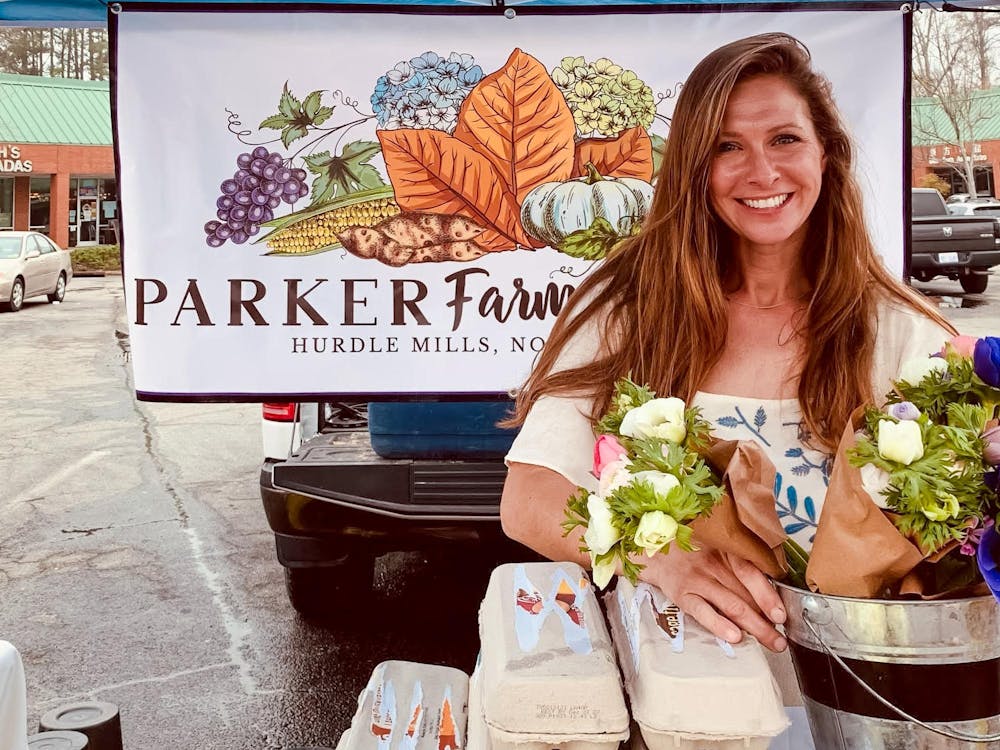Jane Saiers, owner of RambleRill farm in Hillsborough, said that development that reduces farmland is happening all around her.
A 2022 study by the American Farmland Trust found North Carolina ranks second in the country for potential agricultural land loss by 2040.
“What’s happened out here, especially where we are — our farm is very close to downtown Chapel Hill, downtown Hillsborough, downtown Carrboro — is what used to be farms of a couple 100 acres or so, or even 100 acres or 50 acres, they’re being fragmented and bits and pieces of the old farms are being sold off, and it's fragmenting the farmland, and that makes it more difficult, just generally, for farmers to do their job,” Saiers said.
RambleRill is one of more than 600 farms in Orange County that operates directly to consumers or through local farmers' markets.
The 2017 Orange County U.S. Department of Agriculture (USDA) census found that the number of farms in the county had increased by six percent since 2012. Updated census information will be available in February 2024.
However, Noah Ranells, the NC FarmLink Director for Eastern North Carolina — a program of N.C. State University Extension that connects farmers, landowners and service providers across the state — said the county's farmland acreage has generally declined steadily over time.
He said counties in the Piedmont Crescent — which includes the Triangle — are seeing lots of development pressure.
The Orange County Department of Environment, Agriculture, Parks and Recreation has programs to help preserve farmland, including the Voluntary Agricultural Districts program and the Lands Legacy Program.
The Lands Legacy Program aims to protect the county’s most important natural and cultural resource lands. Most are protected through a conservation easement — a permanent, legal agreement between the County and property owners who are interested in conserving their land.



